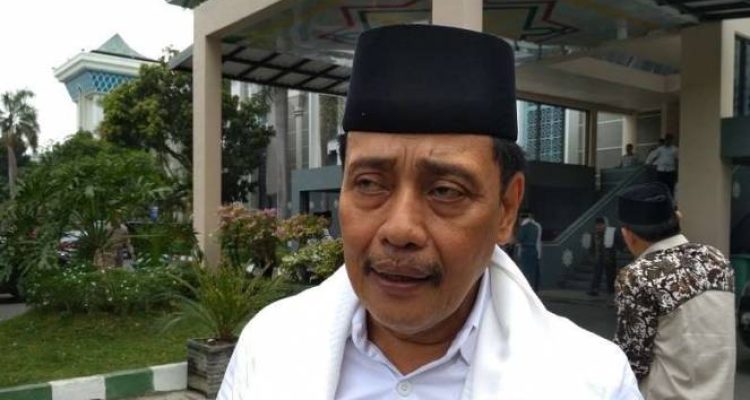Former Foreign Minister Annalena Baerbock was voted in as president of the UN General Assembly. Meanwhile, Germany's tough migration policy has been dealt a setback in court. DW has more.
This blog is now closed. Here's a roundup of the news stories fromGermanyfrom Monday, June 2, 2025:
Newly-elected UN General Assembly President Annalena Baerbock hopes to oversee some big changes in her new role.
DW's Ines Pohl sat down with Baerbock in New York City to outline her plans to reform the organization.
To view this video please enable JavaScript, and consider upgrading to a web browser thatsupports HTML5 video
The Ukrainian representative to theUnited Nations, Andrii Melnyk, has told DW that he is hopeful new UN General Assembly President Annalena Baerbock will be able to use new position to bring an end to the war.
"Her record as a foreign minister, personally contributing to the support of Ukraine, also saw Germany as the second biggest, ally of Ukraine in this war," Melnyk told DW.
"I am confident that Annalena Baerbock will pursue the goal of consolidating democratic forces [in Ukraine], strengthening the United Nations, but also helping Ukraine to defend our independence."
Russia has repeatedly vetoedUN Security Councilresolutions to condemn the it attempt to annex parts of Ukraine. However, Melnyk is hopeful that with Baerbock at the helm, she could help ensure the UN charter is upheld.
"We think that the General Assembly could play a special role," he added. "Especially in this historic moment. We believed that Annalena Baerbock would be capable to consolidate the support within this important democratic organ.
"We are happy to have a president that understands why the UN charter and why international law should be protected and upheld to to stop the war. This war shall be finished on the principle of UN charter, which is territorial integrity and sovereignty."
To view this video please enable JavaScript, and consider upgrading to a web browser thatsupports HTML5 video
Interior Minister Alexander Dobrindt said Monday evening that the government would stick to its migration policy after the Berlin Administrative Court's ruled that turning backasylum-seekersby police at German border controls is unlawful unless carried out under theEU's Dublin procedure.
"You can see how dysfunctional the whole asylum system is. The numbers are too high. We are sticking to our practice," he told reporters.
"We will continue with the pushbacks," Dobrindt said in a statement, adding that "we think we have the legal justification for this."
Dobrindt added that the interior ministry would provide more detailed justifications for the pushbacks, as requested by the court.
Chancellor Friedrich Merzhas pledged to crack down on migration. Shortly after taking office last month, Chancellor Merz's government advised police that they could turn back irregular migrants at the border, even if they applied for asylum.
A study released on Monday has revealed that more than one in five women inGermanyexperiencedsexual violence as children.
The extent of the offences is "alarmingly high," said Harald Dressing, a psychiatrist who authored the study for the Central Institute of Mental Health.
Almost 21% of women aged 18-59 are estimated to have beenvictims of sexual violence before turning 18, based on a survey, compared to 4.8% of men. Up to 95% of perpetrators are men.
"Sexual offences happen everywhere where children and parents should be able to expect a safe space for children," Dressing noted.
Known for researching sexual abuse in the Catholic and Protestant churches, Dressing said thatviolence is rife across varying environments in Germany.
The effects of abuse can be devastating, he warned. "When a child becomes a victim of sexual violence, it is a serious trauma.It can destroy a life."
To view this video please enable JavaScript, and consider upgrading to a web browser thatsupports HTML5 video
According to the study's authors, sexual violence covers behavior with and without physical contact, such as sexual harassment, coercion and penetration and also encompasses internet grooming.
In total, 5.7 million people in Germany are said to have suffered sexual violence as children, representing 12.7% of the population, the study found.
The average age of victims was 11.2 years old, with around half experiencing sexual violence on multiple occasions.
In around a third of cases, girls reported suffering abuse from family members or friends. In contrast, boys were more likely to be targeted in sport clubs, youth groups or religious contexts.
More than a third of respondents in the study said they had never previously disclosed the abuse, while only 7% said they had filed charges against their perpetrators.
German authorities have requested for a new search operation to take place in southern Portugal related to the disappearance ofBritish child Madeline McCann, local media have reported.
According to reports by CNN Portugal and SIC Noticias citing investigative sources, Portuguese police will begin searching on Tuesday at the Algarve seaside resort of Praia da Luz where three-year-old McCann disappeared 18 years ago.
According to CNN Portugal, the new search will also include a house wherethe German suspect in McCann's disappearance,a sex offender with multiple previous conviction, is said to have lived in Portugal in the early 2000s.
The request for a new search is part of a warrant issued by the Brunswick Public Prosecutor's Office, in northern Germany, which is conducting a preliminary investigation into the suspect.
Investigators suspect that she was kidnapped and murdered. However, a body was never found. The last known majorsearch operation in this case took place around two years ago, at the end of May 2023. Like previous search operations, it ended without result.
Germany's economy minister, Katherina Reiche, said on Monday that the government plans to build new gas-fired power plants in the southern state ofBavariaas part of its bid to fulfil pledges to bring down electricity prices forenergy-intensive industry.
She told a meeting of the Bavarian Cabinet that "two-thirds" of the planned new capacity would be built in the state as part of a "southern bonus," with Bavaria prioritized in "the tender for the first 20 gigawatts that we have planned in Germany."
"Security of supply, climate protection and affordability must come together again in a balanced triangle," the minister said.
She said the government was already holding consultations with the EU's executive body, theEuropean Commission, about the plans.
The plans to increase reliance on gas-fired plantshave come under criticismfrom environmental groups and some energy experts.
To view this video please enable JavaScript, and consider upgrading to a web browser thatsupports HTML5 video
FormerGerman Foreign MinisterAnnalena Baerbock was elected president of theUN General Assemblyafter a vote on Monday in New York.
She received 167 votes in a secret ballot, with Chairman Philemon Yang making the announcement on Monday.
Baerbock was the only candidate to runand expressed her gratitude for her election, saying she wanted to be an "honest broker" for the General Assembly.
Baerbock is due to be inaugurated for the role, which is largely ceremonial, on September 9, shortly before the General Assembly's annual meeting. Herterm as president will last for one year.
She is the fifth woman to hold the post since the UN was founded almost 80 years ago. All 193 UN member states are represented in the General Assembly.
An administrative court in Berlin hasruled that it is illegalfor asylum seekers to be turned back at the border.
The ruling is a blow to ChancellorFriedrich Merz, who has pledged to crack down on irregular migration.
Shortly after the conservative-led coalition government took office last month,it advised police that they could block irregular migrants from entering German territory,even if they applied for asylum.
The ruling came in response to a lawsuit brought by three Somalis who were sent back to Poland from the German border town of Frankfurt an der Oder last month.
The court said Germany was obliged to fully comply with the EU's so-called Dublin procedure for asylum cases.
To view this video please enable JavaScript, and consider upgrading to a web browser thatsupports HTML5 video
Civil liberties in Germany have been ranked as "impaired" by relief organization Brot für die Welt (Bread for the World), putting the country in a category with Slovakia, Argentina and the United States, and behind Austria, Estonia, the Scandinavian countries, New Zealand and Jamaica.
Germany was taken out of the first, or "open," category of countries with full civil liberties two years ago, partly because of the harsh way it has dealt withclimate protests, the NGO said.
In its Atlas of Civil Society, which gathers date from theCivicusnetwork of civil society organization, Brot für die Welt said just 3.5% of the world's population enjoyed unrestricted civil rights and liberties.
Altogether 40 countries, including 12 EU member states, were put in the "open" category, 42 in the "impaired" category, 35 in the "restricted" category, 51 in the "oppressed category" and 29, including Russia, in the "closed" category.
This latter category, which includes 29.9% of the world's population, denotes countries where people live in an "atmosphere of fear."
The Atlas (in German) can be foundhere.
The German government is preparing a bill that would make it easier for it to determine "safe countries of origin" for migrants, a move that is likely to further restrict the possibility of applying for asylum, a newspaper has said.
TheTagesspiegelnewspaper reported that the German Cabinet could approve the measure on Wednesday.
The bill would make it possible for the government to decide on which countries are listed as safe without approval of the categorization by theBundesrat, the upper house of the German parliament.
Migrants from countries designated as "safe" are unlikely to have their asylum applications approved, and deportations of asylum-seekers to such countries face fewer legal hurdles.
The conservative-led government under ChancellorFriedrich Merzhas vowed to focus on tackling irregular migration.
Under the coalition agreement between Merz's conservative bloc and the center-left Social Democrats (SPD),India,Algeria,MoroccoandTunisiaare first in line to be designated "safe."
Currently, the list of "safe countries of origin" includes EU member states and a small number of other countries.
In Eastern Europe,Albania,Bosnia-Herzegovina,Kosovo,North Macedonia,Serbia,GeorgiaandMoldovaare all deemed safe, along withSenegalandGhanain western Africa.
German ChancellorFriedrich Merzwill advocate a "fair ceasefire" in Ukraine during his first in-person meeting with US PresidentDonald Trumpin Washington on Thursday, a German government spokesperson said on Monday.
"The government's objectives are clear and the chancellor will do everything in his power to lobby the US president for a fair ceasefire, including with the threat of sanctions," the spokesperson told reporters in Berlin.
The spokesperson added that Merz was aware that US Republican Senator Lindsey Graham was pushing for tighter sanctions on Russia overits full-scale invasion of Ukrainebut said the chancellor would not interfere in US domestic affairs.
Trump has so far appeared reluctant to impose tougher sanctions on Russia despite at times seeming to befrustrated at Moscow's continuing attacks on Ukraine.
Meanwhile, a Ukrainian Foreign Ministry spokesman has said Kyiv officials have met with diplomatic advisers from Germany, Italy and the United Kingdomahead of talks later on Monday in Istanbul with Russian delegates.
"The sides coordinated positions ahead of today's meeting between Ukrainian and Russian delegations. Members of the Ukrainian delegation reiterated Ukraine's commitment to peace efforts," the spokesman said.
The number of lawsuits overasylum decisionsand over fast-track processing of asylum applications in Germany has risen dramatically since last year, the mass-circulationBilddaily reported on Monday.
According to the paper, which cited statistics from higher administrative courts in all German states, there were 67% more such lawsuits in the first quarter of 2025 than in the same period in 2024.
The highest number of lawsuits was registered in the northwestern state of Lower Saxony, with an increase of almost 120%.
The flood of legal actions has led the judges' association BDVR to describe as "unrealistic" the declared aim of the German government and states to shorten the processing of asylum applications ahead of the planned reform of the EU's asylum system from July 2026.
"Many German states will not manage to finish up asylum proceedings within the planned six-month deadline," the BDVR's deputy chairwoman, Caroline Bülow, said.
As a reason for the increase, theBildcited the fact that an increase in staff since early 2024 at the Federal Office forMigrationand Refugees had led to a rise in the number of asylum applications processed.
However, another part of the problem is that many asylum-seekers see the German government as having reneged on asylum promises,as DW reported last month.
Several of the measures introduced by German ChancellorFriedrich Merzto curb migration since taking office, such as tighter border controls,have come under fire as possibly violating both German and EU law.
To view this video please enable JavaScript, and consider upgrading to a web browser thatsupports HTML5 video
German PresidentFrank-Walter Steinmeierhas congratulatedright-wing nationalist Karol Nawrocki on winning Poland's presidential election on Sunday.
"German-Polish friendship is a matter close to my heart. Let us strengthen the friendship between our peoples together," said Steinmeier.
"We must work closely together on the basis of democracy and the rule of law in order to secure Europe's future in security, freedom and prosperity," he added.
He invited the president-elect to Berlin.
Nawrocki's victory could in fact complicate ties between Berlin and Warsaw, as Nawrocki vowed during his campaign to raise the issue ofWorld War II reparations, which has long dogged German-Polish relations.
German ChancellorFriedrich Merz, during his inaugural visit to Warsaw, emphasized that the new conservative-led government in Berlin sees the issue of World War II reparations as legally closed, but Warsaw does not share this view.
The euroskeptic Nawrocki, who as president will have considerable powers, might also use them to block efforts by Polish Prime MinisterDonald Tusk's government as his predecessor Andrzej Duda has done in the past.
German ChancellorFriedrich Merzhas urged Israeli Prime MinisterBenjamin Netanyahuto give more emergency aid to the Palestinian population in theGaza Strip.
According to government spokesman Stefan Kornelius, Merz told Netanyahu in a phone call that it was urgently necessary to allow sufficient humanitarian aid to enter thePalestinian territoryand to guarantee its safe distribution.
Merz's remarks come afterreports of the Israeli military shooting at civilians waiting for aid distribution.
The German chancellor also reiterated in the phone call that the security and the right to existence of Israel were an integral part of Germany's fundamental political position, Kornelius said.
Merz also stressed that the German government considered anegotiated two-state solutionas the best way of enabling peaceful coexistence between Israelis and Palestinians.
Israel has been carrying out a war in the Gaza Stripin response to militant attacks on southern Israel led by the IslamistHamasgroup on October 7, 2023, in which more than 1,200 people were killed and some 250 hostages taken.
The offensive has killed tens of thousands and created a humanitarian crisis in the Palestinian territory, with the UN recently calling Gaza "the hungriest place on Earth."
Nearly one-third of people living inGermanyare planning to travel less or for shorter periods of time this year, a YouGov survey has shown.
According to the survey conducted for an annual tourism industry summit in Berlin, about one in five (20%) said they intend to take less frequent trips, while one in 10 (11%) said their trips would be of shorter duration.
However, 10% of respondents said they planned on traveling more often in 2025, and 44% said they were not changing their travel habits in comparison with last year.
Two-thirds of those surveyed said that they had planned their vacations between June and September despite the increased frequency of heat waves and wildfires in popular holiday destinations, with just under 30% saying that extreme weather and the risk of natural catastrophes influenced their travel behavior.
To view this video please enable JavaScript, and consider upgrading to a web browser thatsupports HTML5 video
Some 54% said rising costs were a major factor in planning travel, while 45% cited the political situation in the planned destination as playing a role. Families of three to four people were more concerned about these aspects than smaller family units, the study said.
Every second person in Germany planned at least one trip within the country itself in 2025, while 5% intended to travel to either North or South America.
According to the study, 17% are not intending to travel at all in 2025.
Germans are known for their love of travel,a well-documented phenomenon.
Post Views: 56




